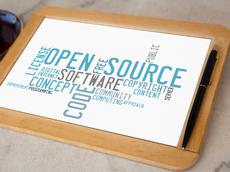Adobe
See the following -
Using Open Source in the Enterprise - 13 CIOs Embracing Free and Open Source Software
 Open source enterprise use cases appear to be on the rise, at least anecdotally, with an increasing number of CIOs, IT directors and Chief Technology Officers telling CIO UK about investigating and adopting free and open source alternatives to proprietary software as they seek to gain freedom and flexibility, cut costs, increase agility, improve code quality and avoid vendor lock-in.
Open source enterprise use cases appear to be on the rise, at least anecdotally, with an increasing number of CIOs, IT directors and Chief Technology Officers telling CIO UK about investigating and adopting free and open source alternatives to proprietary software as they seek to gain freedom and flexibility, cut costs, increase agility, improve code quality and avoid vendor lock-in.
- Login to post comments
What Do We Mean When We Talk About Software 'Alternatives'?
 The word alternative is one of those shifty terms, with a definition that changes depending on perspective. For instance, something that is alternative to one person is the norm for another. Generally, the term alternative is considered to be defined by the fact that it is not considered to be in the majority or the mainstream. Then again, sometimes the term "alternative" gets attached to the second instance of something. If a web server, such as Apache, exists, then any time a different web server gets mentioned, it gets the alternative badge, because we all assume that we all silently concede that whatever it is, it's an alternative to that big one that we all know about...
The word alternative is one of those shifty terms, with a definition that changes depending on perspective. For instance, something that is alternative to one person is the norm for another. Generally, the term alternative is considered to be defined by the fact that it is not considered to be in the majority or the mainstream. Then again, sometimes the term "alternative" gets attached to the second instance of something. If a web server, such as Apache, exists, then any time a different web server gets mentioned, it gets the alternative badge, because we all assume that we all silently concede that whatever it is, it's an alternative to that big one that we all know about...
- Login to post comments
Why 2018 Was a Breakout Year for Open Source Deals
 At the beginning of 2018, it didn't seem like the open source movement could get any bigger. Android, the world's most popular mobile operating system; websites including Facebook and Wikipedia; and a growing number of gadgets have open source software under the hood-literally, in the case of cars. The world's largest companies, including Walmart and JP Morgan Chase, not only use open source but have released their own open source software so the rest of the world can modify and share their code. Then, in June, Microsoft announced plans to buy GitHub, the platform used by millions of developers and companies, including Google and Walmart, to host popular open source projects, for $7.5 billion.
At the beginning of 2018, it didn't seem like the open source movement could get any bigger. Android, the world's most popular mobile operating system; websites including Facebook and Wikipedia; and a growing number of gadgets have open source software under the hood-literally, in the case of cars. The world's largest companies, including Walmart and JP Morgan Chase, not only use open source but have released their own open source software so the rest of the world can modify and share their code. Then, in June, Microsoft announced plans to buy GitHub, the platform used by millions of developers and companies, including Google and Walmart, to host popular open source projects, for $7.5 billion.
- Login to post comments
Writing Documentation with AsciiDoc
 I discovered AsciiDoc while writing Learn Linux in a Month of Lunches. AsciiDoc is a fantastically thorough markup language for writing books—think Markdown, but with more options, such as sidebars, notes, and tables. AsciiDoc lets you just type, with simple syntax controlling the formatting. When I first started writing my book, I was using Word style sheets with LibreOffice. Manning, my publisher, offered .odt versions for OpenOffice, but I had trouble getting the styles to work...
I discovered AsciiDoc while writing Learn Linux in a Month of Lunches. AsciiDoc is a fantastically thorough markup language for writing books—think Markdown, but with more options, such as sidebars, notes, and tables. AsciiDoc lets you just type, with simple syntax controlling the formatting. When I first started writing my book, I was using Word style sheets with LibreOffice. Manning, my publisher, offered .odt versions for OpenOffice, but I had trouble getting the styles to work...
- Login to post comments